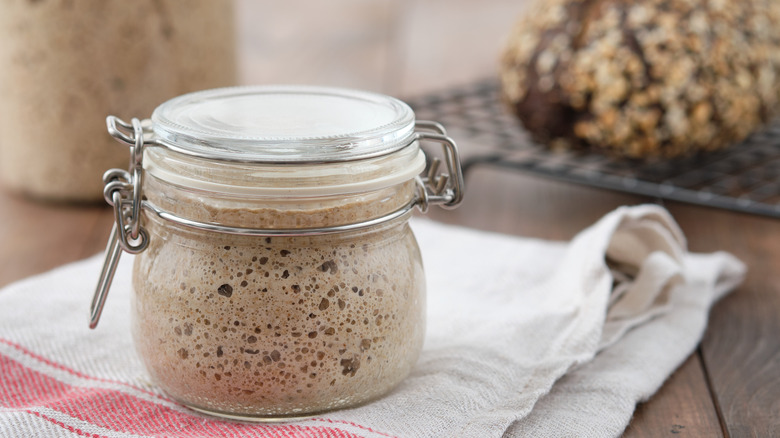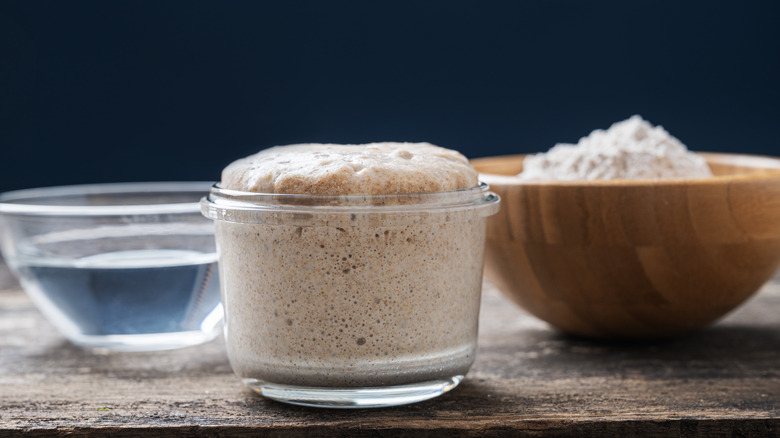Can You Bake Bread With An Unfed Sourdough Starter?
If you love wholesome, chewy sourdough bread, you just might be one of those super-dedicated home bakers who has taken up the task of baking it yourself. And if you are one of those folks, then you certainly know all about starters. A sourdough starter is the most fundamental ingredient of sourdough bread, a yeasty, active mixture of flour and water that gets added to a dough that will rise and then be baked (via King Arthur Baking).
This starter grabs wild yeasts and bacteria from the air, forming a living colony of interdependent beings that consume the regular increments of fresh flour the starter is "fed" with, creating carbon dioxide as a waste product (via WebstaurantStore). Those bubbles, once mixed into a larger quantity of bread dough, will leaven the bread naturally, without the addition of any commercial yeast. Maintaining a healthy, active starter is one of the keys to producing excellent homemade sourdough. And the great majority of the time, sourdough recipes will indicate that part of that maintenance is giving the starter a final feed before baking bread and letting it double in size before starting to bake.
Sourdough starter doesn't technically need to be fed every time you bake
Those who tend to a sourdough starter know it's important to feed the starter with a few spoonfuls of fresh flour at least once a week (via King Arthur Baking). This keeps the microorganisms in the mixture healthy, and failing to do so can result in a dead starter. A regular part of starter maintenance, too, according to almost any sourdough bread recipe you'll find, is always giving it a feed before baking a loaf, typically the night before, so the starter is doubled in volume by the next day (via Breadtopia).
In theory, this is done to make sure the starter is nice and active, ready to confer its carbon dioxide goodness to the loaf and ensure an adequate rise. But according to King Arthur Baking, once you're in the groove of sourdough baking — and keeping your starter routinely well-fed — it's not necessary to always use a fed starter. The site notes that a cold, unfed starter will still get to work in the bread dough, gobbling up the new meal of yeast and rising the dough.
The dough will definitely need some extra rising time once mixed — about 12 hours, usually — but it will, indeed, rise. The site notes that it's best to become an experienced baker who's comfortable working with sourdough before getting a little lax about pre-baking feedings. Once you are, you should be good to go.

